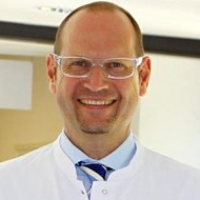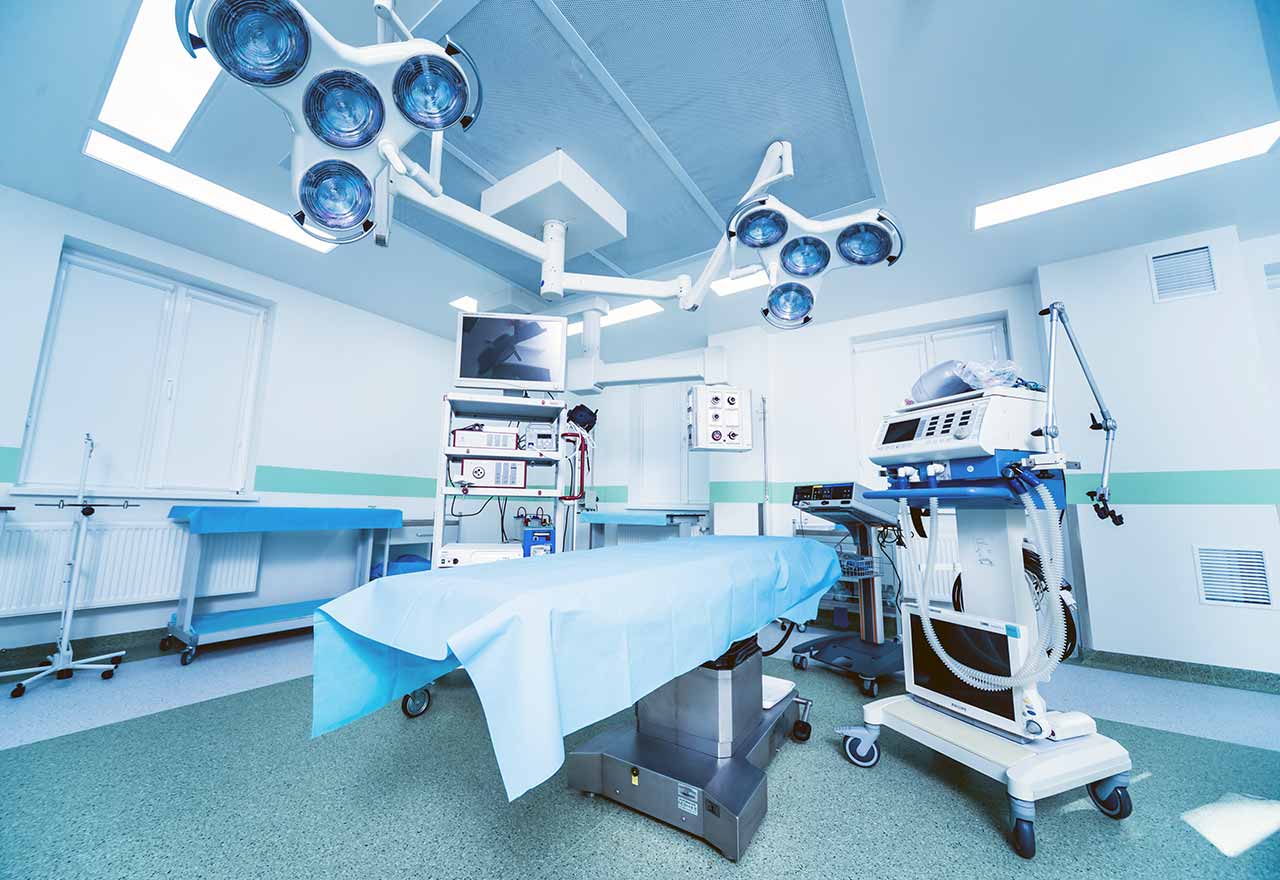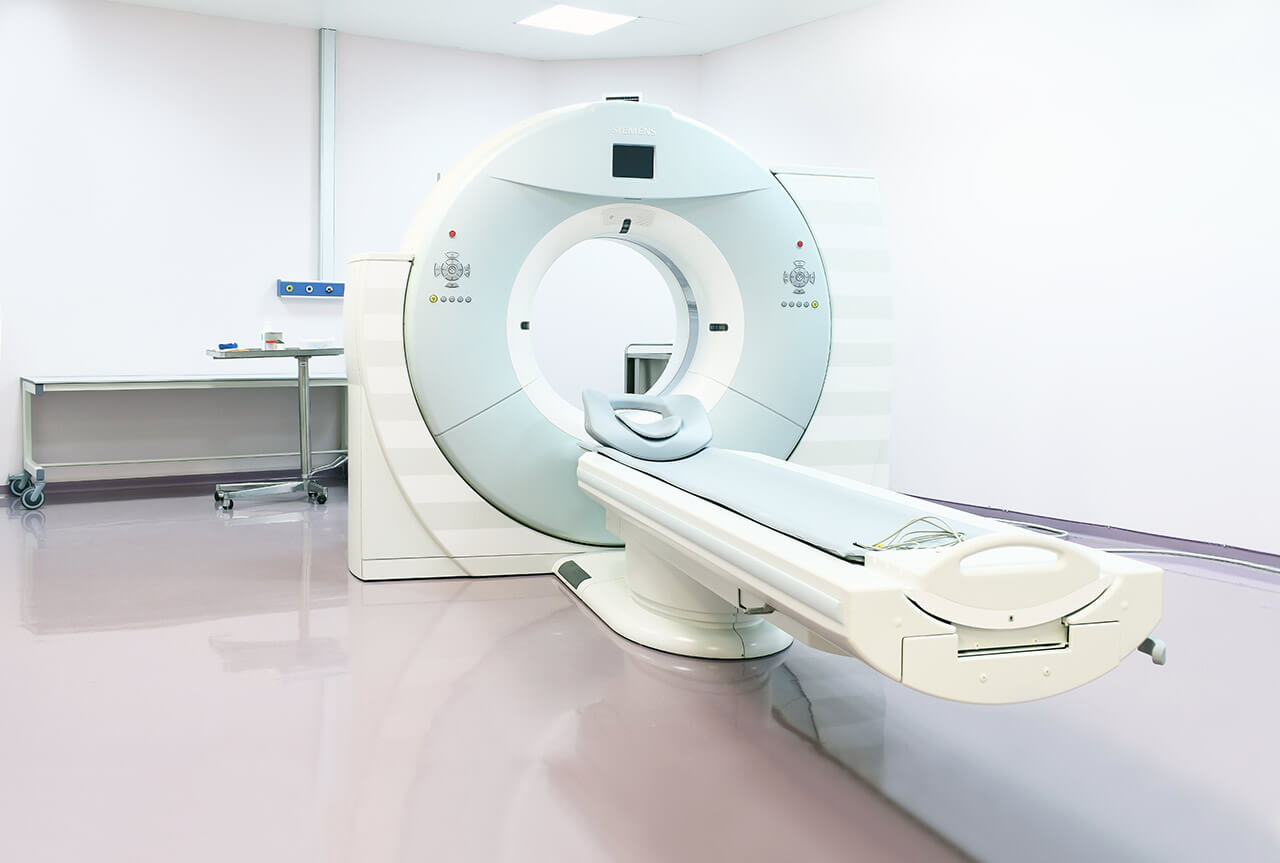
The program includes:
- Initial presentation in the clinic
- clinical history taking
- review of medical records
- physical examination
- laboratory tests:
- complete blood count
- biochemical blood test
- inflammation markers (CRP, ESR)
- blood coagulation analysis (aPTT, PT, INR)
- x-ray of the elbow joint
- MRI of the elbow joint (if clinically indicated, additional cost is 1200 €)
- puncture of the joint capsule with microbiological
and bacteriological analysis (if clinically indicated, additional cost is 1800 €) - nursing services
- services of all leading experts
- explanation of individual treatment plan
Required documents
- Medical records
- Ultrasound scan (if available)
Service
You may also book:
 BookingHealth Price from:
BookingHealth Price from:
About the department
The Department of Adult and Pediatric Orthopedics, Foot Surgery at the St. Remigius Hospital Opladen Leverkusen offers all modern options for the diagnostics and treatment of diseases of the bones, joints, muscles and tendons. The goal of all the department's employees is the optimal maintenance or restoration of the functions of the musculoskeletal system. Whenever possible, the department's doctors solve orthopedic problems using conservative methods, and only in the absence of a positive result, the surgical treatment is prescribed to a patient. In October 2012, the medical facility received the status of the Maximum Care Endoprosthetics Center for its outstanding clinical results in this medical field. The specialists of the healthcare facility are rightfully proud of their successful experience in the treatment of orthopedic diseases in children, the most common of which are hip dysplasia, deformities of the lower limbs, clubfoot, and flat feet. The department's team of doctors does everything possible to provide each patient with top-class medical care, taking into account his individual needs and wishes. The department is headed by PD Dr. med. Ralf Decking.
The priority tasks of the department's doctors include partial or total joint replacement surgery for knee, hip, shoulder, elbow, ankle joints, as well as finger joints. For this purpose, high-quality implants made of cobalt-chromium, titanium, ceramic and polyethylene alloys are used. Depending on the age of the patient and the quality of the bone tissue, endoprostheses are implanted using cemented and cementless fixation techniques. Many surgical interventions are performed with the use of sparing minimally invasive techniques. When dealing with the treatment of children and adolescents, preference is given to joint-preserving operations, in which the doctors manage to preserve the patient's own joint. During joint replacement surgery, doctors use advanced computer navigation systems to place the artificial joint with pinpoint accuracy, which contributes to the excellent long-term treatment outcomes.
The department's competence also includes operations to replace endoprostheses (revision interventions). Such operations are characterized by a high degree of complexity and require a special professional approach. Sometimes, to stabilize the endoprosthesis, a special (similar to bone tissue) metal material and bone tissue augmentation are used, as well as special implants, for example, modular prostheses, which are made up of several components according to the principle of a construction set.
The department's doctors are experts in the field of arthroscopy. The advantage of arthroscopy compared to open joint interventions is that healthy joint structures are not damaged during the intervention. Due to this, arthroscopy has a less negative effect on the patient's body and is less painful than open surgery. Arthroscopic procedures are most often used to treat cartilage lesions, arthrosis, cruciate ligament injuries, meniscal injuries, loose articular body removal, etc.
The repair of congenital and acquired foot deformities, treatment of foot diseases and injuries are important areas of the department's clinical practice as well. The focus of the specialists in this field are patients with hallux valgus, hallux rigidus, clubfoot, flat feet, metatarsalgia, ankle arthrosis and other pathological changes. Whenever possible, minimally traumatic surgical techniques are used, after which the patient needs a little time to restore mobility.
Particular attention is paid to the treatment of orthopedic pathologies in children and adolescents. There are specially equipped children's rooms and qualified personnel for this purpose. If necessary, the department provides accommodation for one of the parents. If a child is scheduled for a minor intervention, then it is usually performed on an outpatient basis, without hospitalization. The department mostly admits young patients with hip dysplasia, X-shaped and O-shaped legs, clubfoot and flat feet.
The department's key clinical focuses include:
- Knee, shoulder, elbow, ankle and wrist arthroscopy
- Surgery for cartilage lesions
- Surgery for arthritis
- Surgery for cruciate ligament injuries
- Surgery for free articular body removal
- Surgery for meniscal injuries
- Surgery for joint instability
- Knee, hip, shoulder, elbow, ankle and finger joint replacement surgery, including joint-preserving interventions and revision arthroplasty
- Surgical treatment of foot pathologies
- Surgery for hallux valgus
- Surgery for hallux rigidus
- Surgery for flat feet
- Surgery for metatarsalgia
- Surgery for clubfoot
- Surgery for little toe deformities
- Surgery for adducted foot
- Surgery for foot injuries
- Surgery for shoulder pathologies
- Surgery for shoulder impingement
- Surgery for pathological lesions of the shoulder tendons
- Surgery for shoulder arthrosis
- Surgery for shoulder fractures
- Surgery for shoulder sports injuries
- Treatment of rheumatic lesions of the musculoskeletal system
- Treatment of sports injuries of the shoulder, hand, foot, hip and knee joints, torn tendons, ligaments, muscle and bone injuries
- Pediatric orthopedic surgery
- Treatment of hip dysplasia
- Correction of X-shaped and O-shaped legs
- Treatment of clubfoot
- Treatment of flat feet
- Other medical services
Curriculum vitae
Postgraduate Training and Professional Career
- 2002 Board certification in Orthopedics.
- 2002 Additional qualification in Chiropractic.
- 2003 Additional qualification in Physiotherapy.
- 2006 Certification in Foot Surgery of the German Association for Foot and Ankle Surgery.
- 2006 Board certification in Orthopedics and Traumatology.
- 2007 Research Internship in Endoprosthetics, Hospital for Special Surgery, New York.
- 2008 Additional qualification in Special Orthopedic Surgery.
- 2008 Additional qualification in Rheumatology.
- 2009 Habilitation, Faculty of Medicine, University of Ulm.
- Since October 2011 Head of the Department of Adult and Pediatric Orthopedics, Foot Surgery at the St. Remigius Hospital Opladen Leverkusen.
Membership in International Societies
- German Society for Orthopedics and Orthopedic Surgery (DGOOC).
- Founding Member of the International Society for Computer Assisted Orthopedic Surgery (CAOS-International).
- Working Group on Endoprosthetics (AE).
- German Association for Foot and Ankle Surgery (DAF).
Scientific Career
- Participation in clinical and biomechanical research on hip and knee arthroplasty.
- Responsible for surgical courses for doctors in Germany and abroad.
Photo of the doctor: (c) Katholische Kranken- und Pflegeeinrichtungen Leverkusen GmbH
About hospital
The St. Remigius Hospital Opladen Leverkusen provides medical services in accordance with the highest standards. It is part of the Kplus Group, which unites more than twenty medical facilities. All hospitals of the group are not only distinguished by high-quality healthcare services, but also adhere to the Christian beliefs. The hospital's priority focuses are gastroenterology, cardiology, pulmonology, abdominal and thoracic surgery, orthopedics and arthroplasty, treatment of spinal diseases, gynecology and obstetrics. The medical center has an advanced technical base and well-equipped operating rooms, in which experienced surgeons successfully perform both common and especially complex surgical interventions.
The hospital annually diagnoses and treats more than 13,000 inpatients and about 20,000 outpatients. The hospital's medical team consists of more than 300 employees who apply all their experience and skills to restore the health of patients. In addition, doctors and nursing staff strive to surround the patient with care and create the most comfortable conditions for everyone.
The hospital regularly confirms the special quality of medical services, patient care and treatment with awards and certificates from professional medical societies. In 2004, a quality management system was introduced here, the implementation of which was subsequently confirmed by DIN EN ISO 9001:2008 certification. Since October 2012, the Department of Orthopedics and Traumatology was among the first 16 medical facilities in Germany to be recognized as a certified Maximum Care Endoprosthetics Center. In addition, the department meets all the requirements of the German Society of Trauma Surgery in the field of medical care for patients with severe injuries and is a certified Regional Trauma Center. The hospital also has the quality certificate of the German Society for Spine Surgery (DGW).
The goal of all medical personnel of the hospital is to meet the constantly changing standards in healthcare, as well as to satisfy all the needs and wishes of their patients and guarantee them an optimal treatment outcome.
Photo: (с) depositphotos
Accommodation in hospital
Patients rooms
The patients of the St. Remigius Hospital Opladen Leverkusen live in comfortable rooms with a modern design. The standard room includes an automatically adjustable bed, a bedside table, a wardrobe for storing personal belongings, a TV and a radio (for free). Each patient room is also equipped with an ensuite bathroom with shower and toilet. The rooms have access to Wi-Fi.
Meals and Menus
The hospital has an excellent program of three meals a day, the basis of which is the use of freshest and highest quality products in accordance with professional recommendations for a healthy diet. Depending on dietary recommendations and personal preferences, the patients can order an individual menu.
Further details
Standard rooms include:
Religion
The divine service takes place in the chapel of the hospital on the ground floor on Mondays at 7 p.m. Eucharistic service is held on Thursdays from 4 p.m. to 5 p.m.
Religious services are available upon request.
Accompanying person
Your accompanying person may stay with you in your patient room or at the hotel of your choice during the inpatient program.
Hotel
You may stay at the hotel of your choice during the outpatient program. Our managers will support you for selecting the best option.




